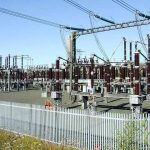.
Oke Peter with Agency Report
There are strong indications that the Federal Government is considering repossession of 10 electricity distribution firms as one of the options to rescue the nation’s beleaguered electricity industry.
This is coming ahead of the scheduled final performance review of the private firms that bought into the distribution companies carved out from the defunct Power Holding Company of Nigeria.
However, document available to one of our correspondents shows that the Federal Government would require up to $2.4bn (N736bn) to repossess the privatised distribution assets from the core investors if it finally takes the decision.
Giving clue that it could recover the assets from the core investors, the Ministry of Power, Works and Housing in a document sighted by one of our correspondents has described the co-owners of the distribution companies as ‘failed investors.’
The distribution and generation companies carved out of the defunct Power Holding Company of Nigeria were handed over to private investors on November 1, 2013, following the privatisation of the power sector by the President Goodluck Jonathan administration.
The Transmission Company of Nigeria, which is responsible for electricity transmission, is still fully owned and operated by the government.
The PUNCH had on Friday reported that 17 of the nation’s 27 power stations had been forced to shut down some of their units on the back of low demand by Discos, worsening the blackout being experienced by millions of customers across the country.
11 Discos declared technically insolvent
Total power generation dropped to 3,264.4 megawatts as of 6am on Monday, August 12 from 3,580.5MW on Sunday. It stood at 2,842.1MW as of 6am last Thursday.
Five and a half years after privatisation, the 11 Discos have been described as ‘technically insolvent.’
The ministry, in its new ‘Power Sector Policy Directives and Timelines,’ said there was an urgent need to recapitalise the Discos.
It described the inability of the Discos to improve customer service and meet operational costs as a direct consequence of their inability to raise capital.
The Bureau of Public Enterprises said in October 2018 that the five-year performance agreement with the core investors in the Discos, with the exception of Kaduna Disco, became effective on January 1, 2015 and the fifth anniversary for final performance review would therefore be December 31, 2019.
The ministry said the Discos’ accumulated debts to the Nigeria Bulk Electricity Trading Plc and the Market Operator had made them technically insolvent.
On the option of repossessing the distribution assets, it said, “To do so within the provisions of the Share Sale Agreement will require a sum in the region of $2.4bn, some of which will be paid as compensation to the failed investors. This is not a desirable outcome. It is noteworthy that government is yet to pay the investor in Yola Disco for its negotiated return to government.”
On July 2015, the Federal Government took over Yola Electricity Distribution Company following the exit of the core investor after it declared a force majeure, citing insecurity in the North-East geopolitical zone of the country.
While highlighting the reasons for the inability of the Discos to raise the capital required, the ministry said new lenders would require additional equity injection.
“But any new equity investor would require clarity about how the accumulated debts would be treated, and what support, possibly in the form of subsidy, regulatory assets and or higher tariff, would be available to manage new operating shortfalls during a transition period,” it added.
Review power sale but don’t politicise exercise —ECAN
The President, Electricity Consumers Association of Nigeria, Mr Chijioke James, told one of our correspondents in a telephone interview that there was a need to revive the power sector.
He said, “It is a welcome development that by December, there will be a review to know how the core investors who took over the power assets have performed. It is based on that feedback mechanism that the government can make an informed decision, which should not be political because the power sector is a very strategic sector for the economy of our country.
“Therefore, in taking any decision, they should have the overall national interest at heart, and not make the same mistakes made in the past. We will love to see a situation where things are done based on merit.
“The Discos that are doing well should be supported and encouraged to do more; those who have failed should be shown the way out.”
Cancelling Discos sale’ll come with contigent liability —TCN MD
Although the Managing Director of TCN, Mr Usman Mohammed, had consistently called for recapitalisation of the distribution companies, he said that cancelling the sale of the Discos was not in the best interest of the nation.
Mohammed had stressed the need for the recapitalisation of the Discos, saying the transmission company would support any initiative aimed at expanding the distribution network.
He said in an interview, “If you implemented right things wrongly, you should right the wrong instead of cancelling it. Because when you cancel it, you get it wrong completely. What we need is to correct it, and recapitalisation can correct it.
“If we cancel the privatisation, we are going to have a contingent liability and we will send a signal to the whole world that Nigeria is not private sector-friendly.
“Secondly, does government have sustainable money to invest in the power sector? No. When you cancel, you will return the money of the investors and you are going to pay them 20 per cent for five years.”
Speaking at the opening of the 23rd Nigeria Economic Summit in Abuja on October 10, 2017, the Chairman of Heirs Holding, Mr Tony Elemelu, had asked the government to dilute the shares of the private investors in the power companies.
Elumelu, a major shareholder in Transcorp Power Consortium, advised the government to invest more in the privatised power firms to wrest them from current operators.
Subsequently, he said, the government could give the Discos to investors who have the resource to run the distribution companies.
Although the government acknowledged at a point that it was considering this option, no concrete action had been seen along this line.
In March, the National Leader of the All Progressives Congress, Bola Tinubu, called on the Federal Government to revisit the privatisation of the sector.
He accused the People’s Democratic Party administration of sharing out the power assets to friends and cronies without very deep and thoughtful research and evaluation.
Acting on behalf of the Federal Government, the BPE had in its power sector reform programme overseen the sale of 15 power companies — 10 distribution companies and five generation companies — in 2013.
While $1.26bn was realised from the sale of the 10 distribution companies, $1.06bn was realised from the sale of the five generation companies.
The successful opening of financial bids for 15 successor companies towards the end of 2012 opened the gates for the financial inflows into the country in terms of privatisation proceeds.
For Abuja Distribution Company, Kann Consortium emerged as the preferred bidder; for Benin Disco, Vigeo Power Consortium and for Eko Disco, West Power and Gas.
For Enugu Disco, Interstate Electrics Limited emerged while for Ibadan Disco, Integrated Energy Distribution and Marketing Limited had emerged.
EDC/KEPCO Consortium emerged the preferred bidder for Ikeja Disco; Aura Energy Limited for Jos Disco; Sahelian Power Limited for Kano Disco; 4Power Consortium for Port Harcourt Disco; while Integrated Energy Distribution and Marketing Limited emerged for Yola Disco.
For the power generation companies, North-South Power Limited emerged for Shiroro Hydro Power Plc; Mainstream Energy Solutions emerged for Kainji Hydro Power Plc.
CMEC/EURAFRIC Energy Limited emerged for Sapele Power Plc; Amperion Power Distribution Limited emerged for Geregu Power Plc; while the Transcorp Consortium emerged for Ughelli Power Plc:
Two consortia also later emerged preferred bidders for the last of the two successor electricity companies from the Power Holding Company of Nigeria — Afam Power Plc and Kaduna Electricity Distribution Company.
With a bid of $260.05m, Taleveras beat TES Power to emerge the preferred bidder for Afam Power Plc, the last of the generating companies carved out from the defunct PHCN.
Similarly, Northwest Power Limited emerged the preferred bidder for Kaduna Electricity Distribution Company, the only remaining of the 11 distribution companies carved out from PHCN.
However, the sale of Afam to Televeras later felled apart.
The government is now in the process of reselling the GENCO alongside Yola Disco whose former core investor declared force majeure leading to repossession by the Federal Government.









